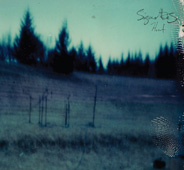Words I Don't Use
There are a great many gorillas in the room, most of them 800 pounds.
Discussions in the church have always ridden on a razor's edge. As in marriage, we must often end by apologizing and gracefully accepting another's forgiveness as it is gracefully given, and all this in honor of the Lord Jesus. But if conversation in the church is a briar patch, discussions between the Bride of Christ and the world are a thin rocky path skirting a cliff. In order to maintain good relations, the church has sometimes sacrificed necessary doctrines. Mostly, these losses are subsumed into our daily habits. We are the boiling frog; we would never do it if we knew the consequences.
The power of language is something we have forgotten to believe. Call anyone who is not a Christian a 'pagan' or 'heathen,' and you will quickly rediscover the power of language to elicit a reaction by laying bare the face of an issue. So instead, we say 'non-believer' or, less often, 'unbeliever.' The problem with these words is that they presume an initial condition of sainthood, which, according to Scripture, is as false as presuming that man is intrinsically good. Am I saying we should go about insulting the greater percentage of humanity to its face? Certainly not. But do we speak justly by employing euphemistic language? Are we fair to people by pouring honey over stale bread?
Perhaps these two words are not accurate. 'Pagan' is a Latin leftover from the outworkings of Constantine's empire. It refers to country folk, rural people, when Christianity was wed to the state and spread throughout cities first. 'Heathen' - referring to people who live on the heath - is its Old English counterpart. So what do we say? 'Infidel' is probably the most accurate. It is also Latin in origin and refers to a person "in-fidelis"; "without faith." But, of course, we have heard it used both by Muslims and by caricatures of Muslims, even though it hearkens back to a state which warred against Islam for centuries and is not an Arabic term.
Should we call people pagans or infidels? I've heard it used in sermons and seen it in essays by men I regard highly, but I've neither said it to an infidel nor heard it said thus. It would always require explanation, but perhaps that's a good thing. People called 'unfaithful' will generally argue the point, and this begs the question, "To what, then, are you faithful?" The very nature of the conversation also begs the Holy Ghost to ask, "Are you speaking with a tongue of Love?" Mostly, being hardened to the Grace of God, I am unable to do so. What Grace I accept, though, must not stop with me, but must flow through me. All told, I do no favors by glossing over the Truth.
Discussions in the church have always ridden on a razor's edge. As in marriage, we must often end by apologizing and gracefully accepting another's forgiveness as it is gracefully given, and all this in honor of the Lord Jesus. But if conversation in the church is a briar patch, discussions between the Bride of Christ and the world are a thin rocky path skirting a cliff. In order to maintain good relations, the church has sometimes sacrificed necessary doctrines. Mostly, these losses are subsumed into our daily habits. We are the boiling frog; we would never do it if we knew the consequences.
The power of language is something we have forgotten to believe. Call anyone who is not a Christian a 'pagan' or 'heathen,' and you will quickly rediscover the power of language to elicit a reaction by laying bare the face of an issue. So instead, we say 'non-believer' or, less often, 'unbeliever.' The problem with these words is that they presume an initial condition of sainthood, which, according to Scripture, is as false as presuming that man is intrinsically good. Am I saying we should go about insulting the greater percentage of humanity to its face? Certainly not. But do we speak justly by employing euphemistic language? Are we fair to people by pouring honey over stale bread?
Perhaps these two words are not accurate. 'Pagan' is a Latin leftover from the outworkings of Constantine's empire. It refers to country folk, rural people, when Christianity was wed to the state and spread throughout cities first. 'Heathen' - referring to people who live on the heath - is its Old English counterpart. So what do we say? 'Infidel' is probably the most accurate. It is also Latin in origin and refers to a person "in-fidelis"; "without faith." But, of course, we have heard it used both by Muslims and by caricatures of Muslims, even though it hearkens back to a state which warred against Islam for centuries and is not an Arabic term.
Should we call people pagans or infidels? I've heard it used in sermons and seen it in essays by men I regard highly, but I've neither said it to an infidel nor heard it said thus. It would always require explanation, but perhaps that's a good thing. People called 'unfaithful' will generally argue the point, and this begs the question, "To what, then, are you faithful?" The very nature of the conversation also begs the Holy Ghost to ask, "Are you speaking with a tongue of Love?" Mostly, being hardened to the Grace of God, I am unable to do so. What Grace I accept, though, must not stop with me, but must flow through me. All told, I do no favors by glossing over the Truth.









